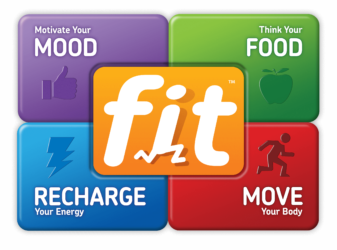INNOVATION IN EDUCATION AT TEC DE MONTERREY
REIMAGINE NEWSLETTER: ISSUE 15
Reimagine the importance
Proficiency in key subjects, such as math, reading, and writing, at each academic stage, is an essential prerequisite of student success. Skills gained during early health education not only help them succeed academically, but prepare them for a lifetime of health and wellness.
Developing health skills is important in both the short- and long-term. In the short-term, based on behavior trends, health education needs to seek to affect areas such as nutrition, physical activity, depression, sleep, and motivation.
Evidence has demonstrated the correlation between health behaviors and academic success. Healthier students are better learners on all levels of academic achievement: academic performance, education behaviors, and cognitive skills and attitudes.
Long-term, the importance of emphasizing health education is even more apparent if one considers that 60% of overweight children are at greater risk of heart disease and that 1-in-3 adults could have diabetes by 2050.
Reimagine the focus
Increasing the emphasis on health in education is important, but educators must go beyond the traditional focuses: increasing knowledge, informing students on what to eat, and adding physical activity. Instead, they must attempt to truly increase application and change behaviors. In other words, the focus must move from information to implementation.
Behavior change theory outlines progressive stages of change in knowledge, readiness, and action. To incorporate this theory into educational settings, curricula and programs have to: (1) move from “education” to “activation,” and (2) focus on key topics and relationships that impact change and outcomes.

The fit programs apply our “health activation” approach, which integrates best practices from education, health coaching, marketing, and patient activation. This approach leverages two core models that disguise the process of behavior change into academic components that are simple, engaging, and impactful.
The fit health behavior model focuses on four key areas of content, which include:
- Choices to improve:
FOOD – snack choices, fruits and vegetable consumption, consuming more water, and ingesting less sugar
MOVE – adding physical activity throughout the day, while also decreasing screen time
- Primary influencers of choices:
MOOD – being mindful and motivated, and practicing healthy responses to emotions
RECHARGE – getting enough sleep and making time to relax in ways that do not involve screens
Reimagine the delivery
The second core model leverages education, marketing, and patient activation practices to drive program design in ways that make them quick, easy, and impactful.
Through micro-learning instructional design principles, our “Captivate, Educate, Activate” model incorporates incremental steps to establish healthy habits rather than overemphasizing decontextualized data and scientific facts.
- Captivate – create engagement and establish context
- Educate – disseminate key information in ‘chunked’, easily-digestible fashion
- Activate – drive application outside the educational setting
Additionally, since students are inundated with unhealthy influences (i.e. fast food) from multiple channels, fit resources are developed to be used in multiple environments to reinforce healthy messages and actions.
- fit posters and fit4schools daily calendars promote healthy actions.
- fitBoost and the fitFlow (Yoga) cards guide quick activities.
- fit4schools weekly lessons and challenges can be used in the classroom to encourage kids to drink water, get their sleep, decrease use of electronics, and more.
- fitClub is used as part of PE class or after-school programs.
fit school resources have reached classrooms and gyms in all 50 states. Childcare programs have been used by thousands of providers, while online resources have engaged over 20M visitors.
Program Overview
fit, created by Sanford Health, is a community health initiative focused on combatting childhood obesity and preventing chronic disease through early and persistent education and activation. This initiative was developed to influence behavior change and the adoption of healthy habits linked to improved nutrition choices, increased physical activity, increased energy levels, and improved motivation, attitude, and emotional response.
To learn more about these free resources, visit www.Sanfordfit.org.

